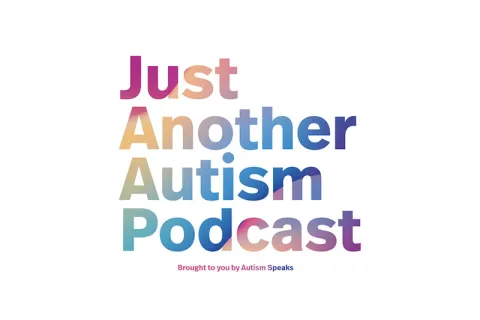Tips for autistic people to make the holidays happy
Advice from an autistic self-advocate
By Brigid RankowskiGrowing up, holidays were always a stressful time for me in many different ways. We would get dressed up in uncomfortable clothes and drive long distances to see relatives who always asked the same questions. And there was never any space I could really “get away from it all” to relax. As I’ve gotten older, things are different. For example, I am now allowed to dress for comfort and not to look like a little princess. Family is so important to me, but even enjoyable social times take a toll on me.
Over the years, I developed different supports and tools to help myself more fully enjoy the holiday times and share them here:
- Charge electronics. Always make sure all your gadgets are fully charged, and don’t forget to bring your chargers. I also have a phone battery pack because using the GPS to get to relatives can be a drain on batteries. Sometimes we need a few minutes to look at fat cat photos online or play a quick game to regulate ourselves. For those who communicate best through typing or technology, being able to freely use electronics is not only important but necessary.
- Know your sensory limits. Family gatherings can be loud with lots of smells and people in close quarters. Knowing all this in advance, we can prepare sensory supports to help us through the holidays. We don’t win anything by pushing ourselves to the breaking point, so don’t feel bad about needing to use fidget toys or weighted pads. It is entirely possible that there are members of your family who also would benefit from sensory supports but don’t know they exist. So your self-advocacy could turn into a really important educational moment.
- Find common interests. Not everyone has the same interests. And in families sometimes our interests can be polar opposites. Still, there are some things people generally like, such as animals or sporting events or food. Identifying common interests really can help break up tensions when topics of conversation get too heated or when you can’t think of anything to talk about. Aunt Marie’s Jello salad may not taste the best, yet it may be the thing you can talk about with Cousin Jerry.
- Plan some scripts. If we don’t see family on a regular basis, there are some regular questions people will ask each other. These include: “How have you been?” “What’s new with you?” “Are you seeing anyone/Are you still seeing (blank)?” and “How’s school?” Knowing there are things you may or may not want to share with your family is important for you to consider. Sometimes there are things we have going on, like health concerns or financial worries, that we don’t know how to correctly bring up. Having scripts ahead of time helps us plan what we want to say and rehearse things in advance.
- Bring your routine. The holidays can be a high stress point for many people. There may be different schedules, different foods and more interactions than normally encountered on a daily basis. If possible, sticking to our usual morning and evening routines can help bring a sense of normalcy to our days. If a routine involves journaling or even watching a favorite show, do those activities when you can as a way to make the days feel like they do at home.
- Prepare mindfulness activities. I grew up as an anxious child into being an anxious adult, so I have learned about many different mindfulness techniques over the years. Recently, I have gotten into meditation and breathing techniques to help relax myself. But there are so many different techniques available. Having mindfulness techniques in your toolbox is a way to prepare for stressful encounters or anxiety-provoking moments.
- Remember you are worthy. Not everyone has the greatest family situation, and it is important to remember that your worth is not measured by others. It can be tough for many who don’t have accepting families to go home during the holidays; you are not alone. Acknowledging the struggles, discourse and misunderstandings can help lessen the impact that hurtful words or actions have on us. Still, their words and actions can hurt. Reminding yourself of self-worth is a tool you can use to help promote confidence in those situations.
The holidays are about connecting with families and celebrating good times. There are often jokes about needing a vacation from our vacations, yet that doesn’t have to be the case. By taking time to prepare for the holidays and being true to our personal limits, we can go into the season in good spirits.
About the author
Brigid Rankowski is a self-advocate who writes and presents on various disability topics with a specialization in autism. She is executive director of The Way We Move, a social circus program that brings circus arts to marginalized communities. Her work for Autism Speaks includes articles on Coping with Disrupted Routines, LGBTAQ+ issues, and the Roadmap to Self-Empowerment for Autistic Adults, among others.










